27 oddest medical cases
Get the world’s most fascinating discoveries delivered straight to your inbox.
You are now subscribed
Your newsletter sign-up was successful
Want to add more newsletters?

Delivered Daily
Daily Newsletter
Sign up for the latest discoveries, groundbreaking research and fascinating breakthroughs that impact you and the wider world direct to your inbox.

Once a week
Life's Little Mysteries
Feed your curiosity with an exclusive mystery every week, solved with science and delivered direct to your inbox before it's seen anywhere else.

Once a week
How It Works
Sign up to our free science & technology newsletter for your weekly fix of fascinating articles, quick quizzes, amazing images, and more

Delivered daily
Space.com Newsletter
Breaking space news, the latest updates on rocket launches, skywatching events and more!

Once a month
Watch This Space
Sign up to our monthly entertainment newsletter to keep up with all our coverage of the latest sci-fi and space movies, tv shows, games and books.

Once a week
Night Sky This Week
Discover this week's must-see night sky events, moon phases, and stunning astrophotos. Sign up for our skywatching newsletter and explore the universe with us!
Join the club
Get full access to premium articles, exclusive features and a growing list of member rewards.
Pathological generosity
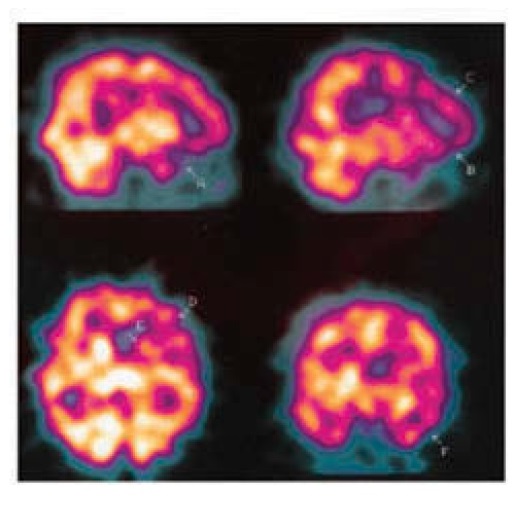
A 49-year-old man in Brazil survived a stroke but underwent a strange personality change afterward -- he developed "pathological generosity," according to a report of his case.
The man began to give away money, and bought candies for children he met on the street, his wife told the doctors. He was unable to manage his financial life, and would have gone into debt if it were not for his wife's attention, the researchers said.
The stroke apparently left the man with "excessive and persistent generosity," the researchers said in the report published Aug. 20 in the journal Neurocase.
The doctors evaluated the patient, by didn't find any evidence of manic symptoms or dementia that could explain his excessive generosity.
A CT scan showed low blood flow to several brain regions, including areas in the frontal lobe. These regions may not be directly damaged by the bleeding in the man's brain during his stroke, but are connected with that region by neural pathways. Damage in these pathways might have had a role in changing patient’s personality, the researchers said. [Image: MRI scan of the bleed]
Hyper Empathy
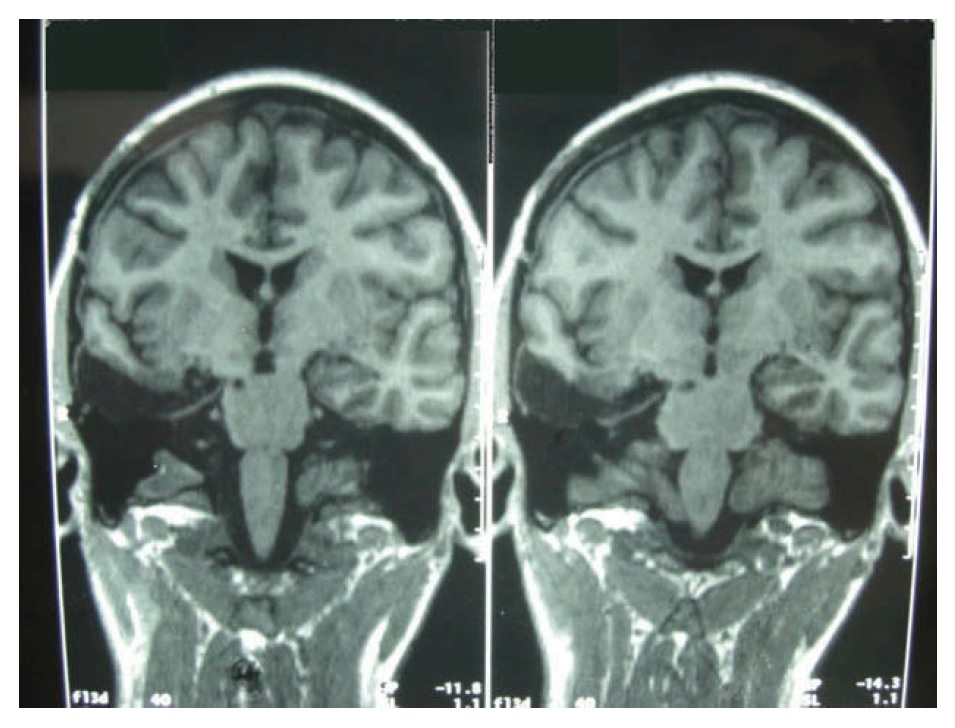
In a strange case, a woman developed "hyper empathy" after having a part of her brain called the amygdala removed in an effort to treat her severe epilepsy, according to a report of her case.
The amygdala is involved in recognizing emotions, and removing it would be expected to make it harder rather than easier for a person to read others' emotions, according to the researchers who reported her case, published Aug. 14 in the journal Neurocase. [Image: Patient's MRI Scan after Removing Amygdala]
Get the world’s most fascinating discoveries delivered straight to your inbox.
The woman reported experiencing a new, spectacular emotional arousal and feeling physical effects along with her emotions, such as a "spin at the heart" or an "esophageal unpleasant feeling" when experiencing sadness or anger.
The researchers evaluated her psychological condition and found she performed exceptionally well on standard tests of empathic abilities.
The researchers said that perhaps, even though the amygdala was gone, other brain regions and newly organized connections among them, were responsible for driving stronger empathy.
Lead pellets trapped in belly
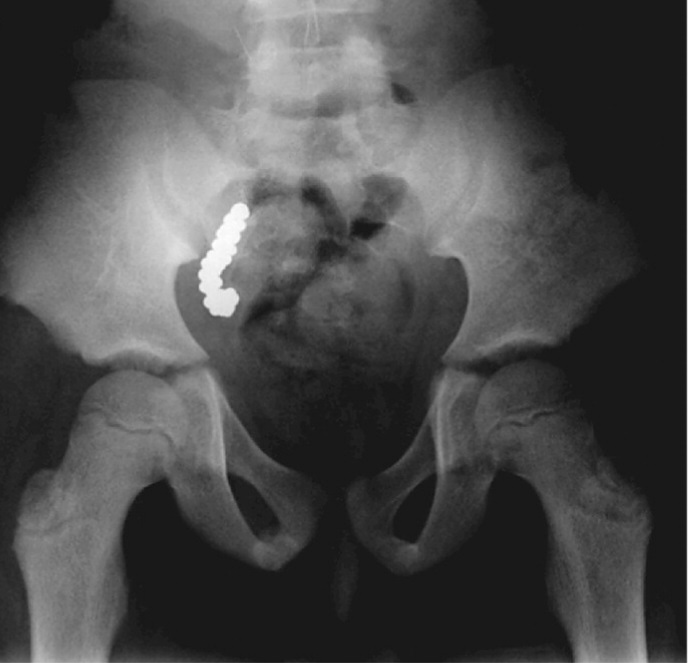
An 8-year-old boy in Australia had high levels of lead in his blood for more than two years for unexplained reasons, until doctors found lead pellets in his body, trapped in an unlikely place, according to a report of his case published in Aug. 8 issue of the New England Journal of Medicine.
When the boy developed a stomachache and was admitted to the hospital, the doctors did an x-ray, which revealed a large number of small round objects in the boy's abdomen, appearing to be inside the digestive tract. The doctors immediately gave the boy a bowel washout, which should have cleared any object within his digestive tract, but a second x-ray showed the objects had not moved.
The doctors suspected the unlikely scenario – the objects had to be lodged in the boy's appendix.
In surgery, the doctors removed the boy’s appendix, and found it weighed five times heavier than normal. When they cut it open, they found 57 lead pellets trapped inside.
It turned out, the boy’s family had hunted for food with a gun that fired such pellets, and the boy had consumed them while playing a game with his siblings.
Armpit hair infection
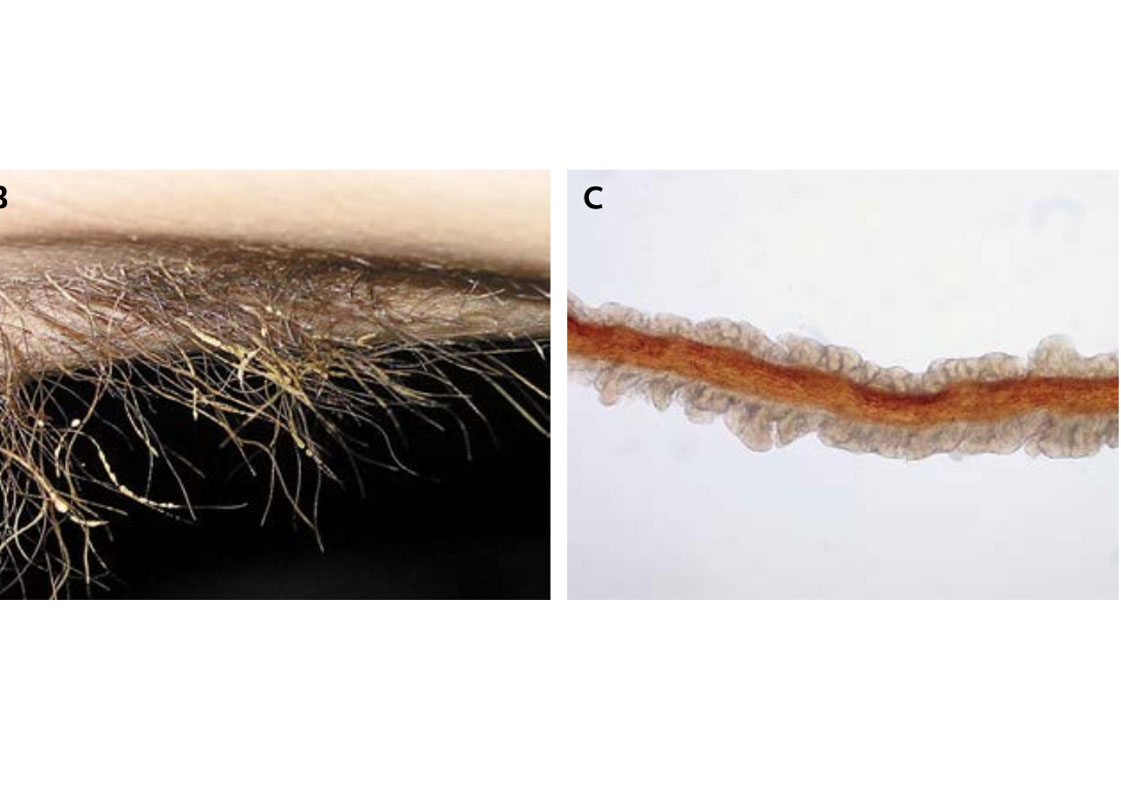
One man's irrepressible body odor was the result of a bacterial infection of his armpit hair, according to a recent report of the case.
The 40-year-old man told his doctors he'd had armpit odor and "dirty" armpit hair for the last four years. There was a "creamy yellow" substance on the man's armpit hairs.
The doctors diagnosed the man with trichomycosis axillaris, which is an infection of hair shafts caused by the bacteria Corynebacterium tenuis.
The man had his armpit hair shaved, and was treated with aluminum chloride (used to treat sweating) as well as the antibiotic erythromycin. The odor went away several weeks later, his doctors said.
The report was published Oct. 30 in the New England Journal of Medicine.
Surfer's eye

Surfer's eye is an eye problem in which fibrous tissue grows over the surface of the eye. To treat this condition, surgeons often cut out the tissue with scissors.
But one adventurous surfer in Hawaii chose to let the force of water take care of his eye, by dipping his head into the rushing water while surfing a 30-foot (10 meters) wave, according to a report of his case published in 2014 in the journal BMJ Case Reports.
Apparently, the blunt force of water ripped off the irritating fibrous tissue, but doctors said the man was lucky the water didn't damage his eye.
Brain stones
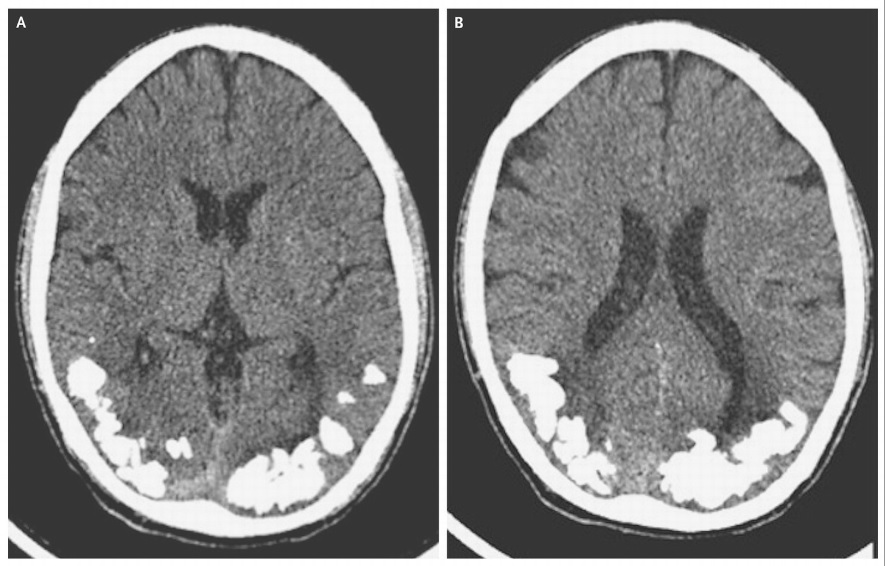
A young man in Brazil who suffered from throbbing headaches and vision problems for 10 years turned out to have stonelike buildups of calcium in his brain.
The stones were likely a rare complication of the man's celiac disease, a digestive condition that the man didn't know he had, according to a report of his case published in 2014 in the New England Journal of Medicine.
Celiac disease is an autoimmune disorder that, over time, can damage the lining of the small intestine and prevent the body from absorbing nutrients.
It is unclear how exactly celiac disease resulted in calcification in the brain, but researchers said it is possible that the patient's lowered ability to absorb iron may have had a role.
Gluten delusions

Sure, the smell of pizza might drive you a little crazy (in a good way), but that's nothing compared to the effect that gluten-filled foods had on a woman whose medical case was described by doctors in the New England Journal of Medicine in June 2016.
The 37-year-old woman was studying for her doctorate when she began to have delusions, including a belief that people were conspiring against her. After the woman made threats against her family, she was diagnosed with a psychotic disorder, but her anti-psychotic medications did little to control her symptoms. Other health issues, including unexplained weight loss and vitamin and mineral deficiencies, led doctors to believe that the woman might also have celiac disease(a condition in which the body can't digest gluten).
A surprising thing happened when the woman stopped eating gluten: She also stopped having delusions. Researchers aren’t sure why celiac disease can sometimes cause problems with the brain and nervous system, but some suspect that immune cells fighting the effects of gluten in the gut might travel to the

 Live Science Plus
Live Science Plus










